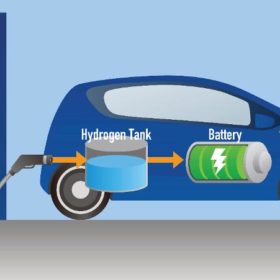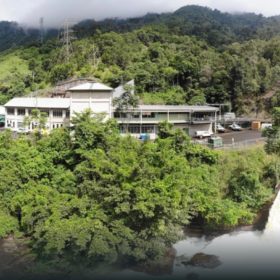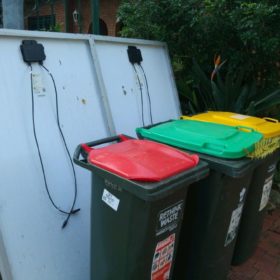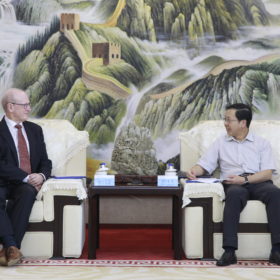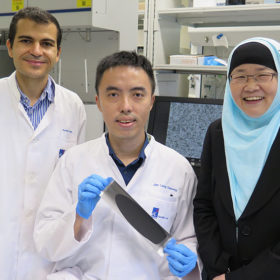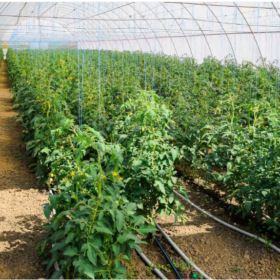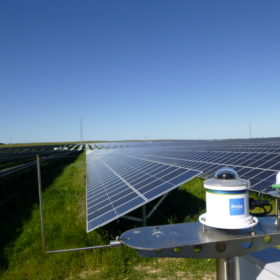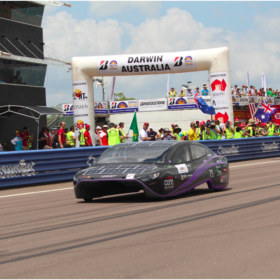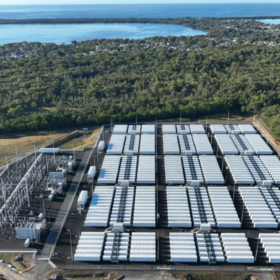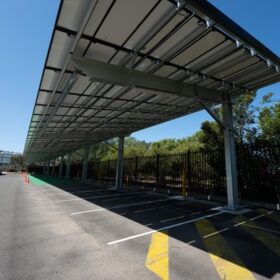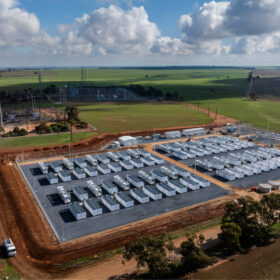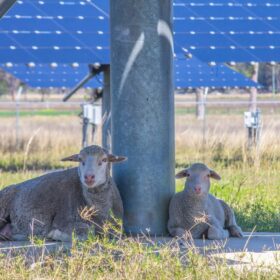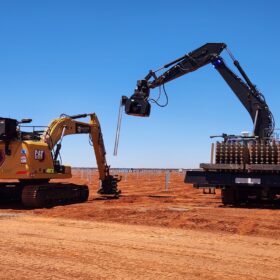Vattenfall goes up in flames, Agoria claims their first BWSC title
After the leading car in the Bridgestone World Solar Challenge caught fire and was forced to withdraw from the race on the final stretch, Belgian team Agoria surged ahead to the front.
QUT at the forefront of Australia’s hydrogen push
As the momentum is building behind hydrogen in Australia and abroad, the Queensland University of Technology (QUT) is leading the way in research and development with a range of initiatives on the ground.
Innovative agreement sees QLD water help carry solar to the grid
Pacific Hydro’s Haughton Solar Farm in Queensland has signed an innovative network support agreement with Stanwell Corporation (Stanwell), a QLD government-owned corporation and the largest electricity generator in the state.
Deakin researchers find ‘Holy Grail’ of PV module recycling
Researchers from Deakin’s Institute for Frontier Materials claim to have solved the biggest problem that’s preventing photovoltaic cells from being recycled.
AEMC proposes to overhaul energy pricing and transmission
The Australian Energy Market Commission (AEMC) has released a discussion paper toward a blueprint for the coordination of generation and transmission investment. The draft proposal seeks to overhaul wholesale pricing and transmission access toward lowering electricity costs and the ever-increasing risks inherent in getting new renewable energy generation into the network.
Lyon Group and China Huadian join forces in the war on curtailment
Solar infrastructure developer Lyon Group has strengthened its ties in the Asian markets through a significant joint-venture with two of Asia’s largest energy generators. The agreement will see integrated battery storage systems utilised to reduce the risk of curtailment and increase the flexibility of renewable energy plants.
A carbon scaffold to boost lithium-sulfur performance
Scientists at Singapore’s Agency for Science, Technology and Research have developed a new method to produce lithium-sulfur based cathodes which exhibit stable performance and high storage capacity over 200 cycles. According to the agency, this represents “a promising step towards the commercialization of lithium-sulfur batteries.”
New chapter for solar+agriculture: BIPV for off-grid greenhouses
A new partnership is seeking to build a world-first off-grid greenhouse which will use solar glass to maintain optimal temperature and regulate irrigation by condensation inside the facility.
Self-forecasting of renewable generation to improve solar farm economics
ARENA’s round of funding for renewable-energy forecasting technologies, initiated in early 2018, is coming to fruition, with wide-ranging benefits for solar farm earnings and the stability of a low- to no-carbon NEM.
Old and new challenges at Bridgestone World Solar Challenge
Following significant changes to the regulations, all participants in the upcoming Bridgestone World Solar Challenge will need to go an extra mile to reach one of only two recharging stops on their way from the Top End to Adelaide. Following final scrutineering to ensure the vehicles are built to the regulations, the UNSW Sunswift solar car team is feeling extra confident for the race in its upgraded four-seater VIolet.

